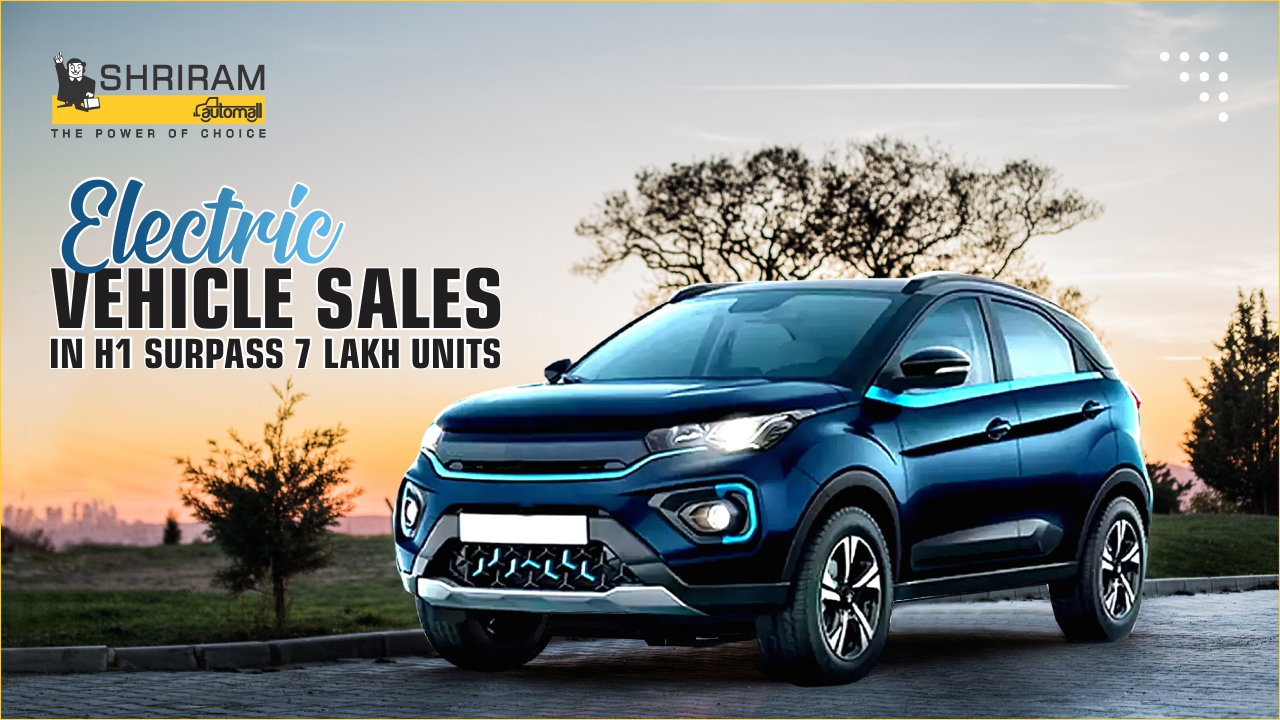Electric Vehicle Sales in H1 Surpass 7 Lakh Units
EV sales in India have soared past the 700,000-unit milestone in the first half of 2023, showing impressive growth compared to the previous year.

The total retail sales as of June 2023 reached 721,971 units, accounting for 73% of the record sales achieved in 2022. Electric two-wheelers and three-wheelers have been the primary drivers of this growth, representing 60% and 34% of total EV sales, respectively. Electric cars and SUVs make up a smaller portion of the market with a 5.31% share. Despite a decline in June due to reduced subsidies, overall EV sales have remained strong, with consistent month-on-month growth. The e-two-wheeler segment, which experienced a significant decline in June sales following subsidy reductions, has still managed to surpass the 100,000-unit mark for the ninth consecutive month. Top OEMs in this segment, including Ola Electric, TVS Motor Co, Ather Energy, and Bajaj Auto, faced challenges due to the subsidy reduction but continue to dominate the market. Ola Electric remains the market leader with a 38% share, while TVS Motor Co holds the second position. The top 10 EV makers command a 90% market share, indicating a high level of consolidation in the industry. The e-three-wheeler segment has witnessed strong double-digit growth, driven by sustained demand for passenger transportation and last-mile applications. Retail sales in this segment reached 48,009 units in June, marking a 72% year-on-year increase and the highest monthly sales to date. Mahindra Last Mile Mobility leads the market with over 35,000 units sold, followed by YC Electric Vehicles and Saera Electric Auto. Electric cars, SUVs, and MPVs have also seen a positive trajectory, exceeding the sales figures of the entire year 2022 within the first six months of 2023. Tata Motors, with its wide portfolio including the Nexon EV, Tigor EV, Tiago EV, and Xpres-T, dominates this segment with a 77% market share. Mahindra's XUV400 has emerged as a rival to the Tata Nexon EV, securing the third position in the market. MG Motor India's ZS EV and Comet EV have contributed to their 8% market share, while BYD India, PCA India, and luxury carmakers such as BMW and Volvo have also made notable sales contributions. The growth of the EV industry in India can be attributed to factors such as an expanded product range, rising fuel prices, state subsidies, and the government's FAME II scheme. Increased awareness about environmentally-friendly transportation and the long-term cost advantages of owning an EV have also played a significant role. While challenges remain, including the need for more charging infrastructure and initial high costs, there is optimism as OEMs focus on localization to reduce prices and battery costs gradually decline. Looking ahead, the second half of 2023 is expected to witness steady progress in the EV market. Although e-two-wheeler sales may face ongoing pressure, demand is likely to pick up after September during the festive season. The industry is cautiously optimistic about the future, driven by the commitment to reach 30% EV adoption by 2030 and ongoing efforts to enhance affordability and accessibility of electric vehicles.

 Download Our App
Download Our App



